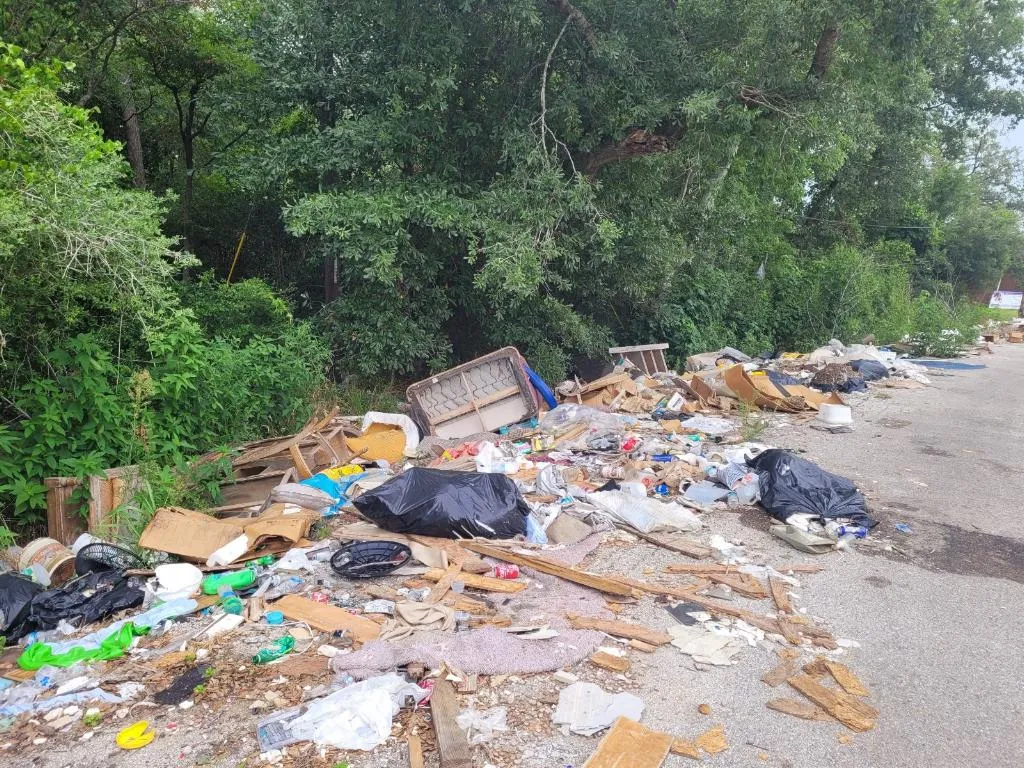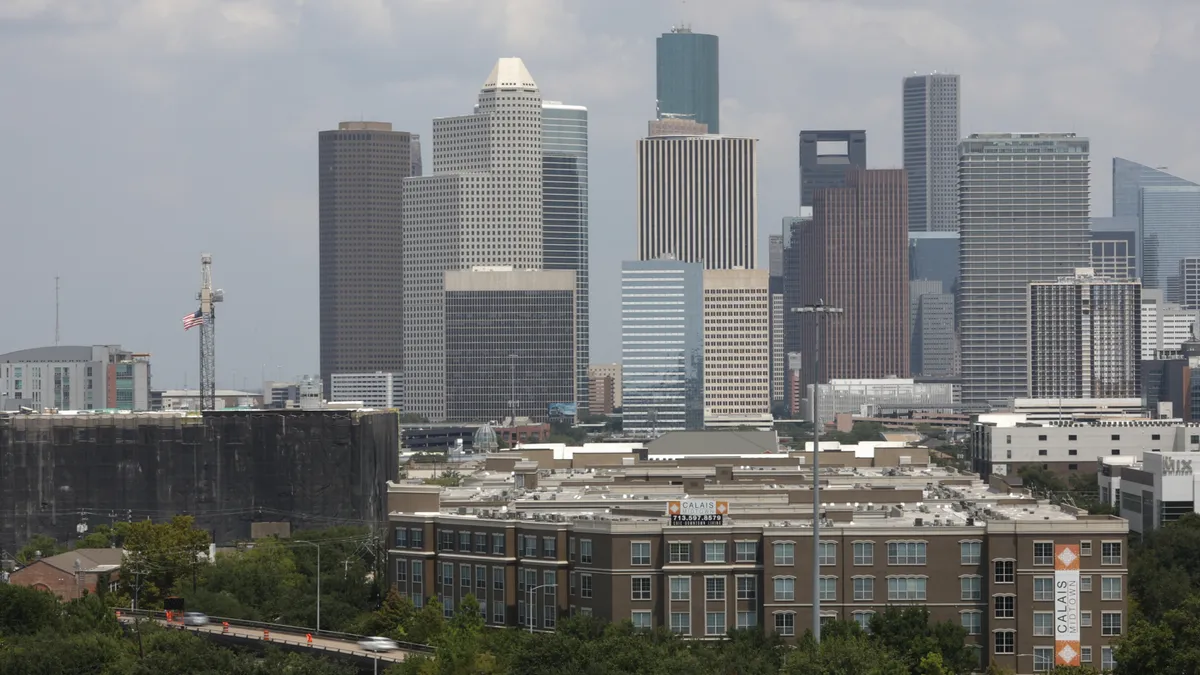Dive Brief:
- The U.S. Department of Justice has reached a voluntary agreement with Houston to settle an environmental justice complaint alleging that the city’s response to illegal dumping in Black and Latino neighborhoods was discriminatory.
- The agreement, announced on Tuesday, requires the city to address illegal dumping through its new One Clean Houston initiative. Houston will also be required to do more community outreach, undergo a three-year period of federal monitoring and data collection, and develop an enforcement and educational plan. Some city employees will be required to attend a federal civil rights training program.
- The settlement announcement drew mixed reactions from residents who have experienced illegal dumping in their neighborhoods for years. Some community organizers applauded the move as a major step toward getting trash off the streets for good, while others were skeptical the agreement would cement long-term solutions.
Dive Insight:
Illegal dumping has long been an issue in Houston, and the DOJ investigation is a notable example of a federal agency stepping in to address municipal solid waste issues as an environmental justice and civil rights issue.
The investigation was spurred by a complaint Lone Star Legal Aid filed in 2022 on behalf of residents in a Northeast Houston neighborhood with predominantly Black and Latino residents who say the city ignored their frequent complaints of illegal dumping. Residents said their neighborhoods were often littered with construction waste, medical waste, old furniture, household trash and carcasses from dead animals.

“No one should have to live next to discarded tires, bags of trash, rotting carcasses, infected soils and contaminated groundwater, all caused by illegal dumping,” said Alamdar Hamdani, U.S. attorney for the Southern District of Texas, in a statement. “For too long now, Houston’s underserved and low-income communities have had to bear the health burdens of the inaction and misdeeds of others.”
In March, Houston announced the One Clean Houston plan, which aims to make illegal dumping cleanups faster, improve enforcement and put more resources into prevention and education. It has a $17.8 million budget for the next two years, including $7.9 million from American Rescue Plan Act funds.
The plan contains $11.5 million for contracting with local waste haulers to address dumping complaints. Houston began securing some of the agreements back in September and said doing so has helped decrease response times for illegal dumping calls on the city 311 complaint line by 40%.
Houston also plans to spend about $200,000 to address its solid waste driver shortage by hosting job fairs and increasing hiring incentives to up to $5,000 a person.
Other strategies in the plan include purchasing new waste trucks to make collections more efficient, expanding its illegal dumping video surveillance program, improving community outreach efforts and promoting free landfill disposal programs for materials such as bulky items in affected areas.
In the settlement agreement, the DOJ said the plan shows Houston has “explicitly recognized that illegal dumping is a pervasive problem that negatively impacts the health, safety, and quality of many communities throughout the city.”
Sylvester Turner, Houston’s mayor, called the discrimination allegations “unfair and disappointing,” saying in a statement that he has worked throughout his administration “to fight environmental injustice.” However, Houston will work with the DOJ as a partner in cleanup efforts, he said. The settlement announcement “isn't a time to celebrate, but we can appreciate progress," he added.
Huey German-Wilson, who has been fighting dumping in the Trinity Gardens and Houston Gardens neighborhoods for years, told the Texas Tribune the settlement was a “dream come true.” She and other residents have sent numerous cleanup requests through the city’s 311 system. "This is quite a feat and it’s way more than we could have imagined," she told the Tribune.
Juan Antonio Sorto, a Houston resident who regularly experiences high volumes of litter on his street, has also been part of community organizing efforts. He was less enthusiastic about the settlement, saying he’s skeptical that the plans laid out in the One Clean Houston initiative or the voluntary settlement are binding enough to hold the city accountable. He worries that possible changes in city leadership, including the upcoming mayoral race in November, could deprioritize dumping issues again.
Sorto said the settlement’s focus on increasing community outreach is a step in the right direction, but that work will require additional funding — something that’s not in the One Clean Houston budget. He also called for city departments, agencies and organizations to work more closely together to coordinate ongoing cleanup efforts.
The DOJ settlement requires “enhanced community outreach” with impacted neighborhoods, including by engaging with residents who don’t speak English as their first language. Meaningful conversations with the community will be important for creating long-term solutions, he said. For example, he said, the city “put up ‘no dumping’ signs in our neighborhood, but they’re only in English.”
Almost a year after the DOJ announced its investigation, Sorto said he and his neighbors still deal with illegal dumping on a regular basis. However, he said that the Biden administration has made environmental justice efforts a priority and “that no other president has done more on this.”
The Houston case is the second environmental justice complaint the DOJ has investigated under federal civil rights statutes. Last month, it announced an interim resolution of a wastewater case involving the Alabama Department of Public Health and Lowndes County Health Department. The DOJ could open more such cases in coming years, as the department recently launched an environmental justice enforcement strategy and opened its its own Office of Environmental Justice.















